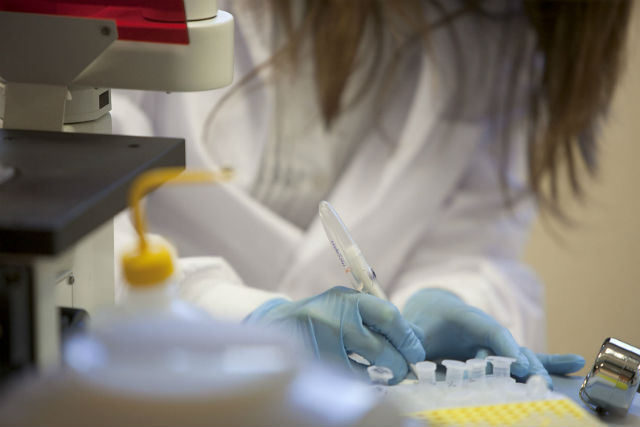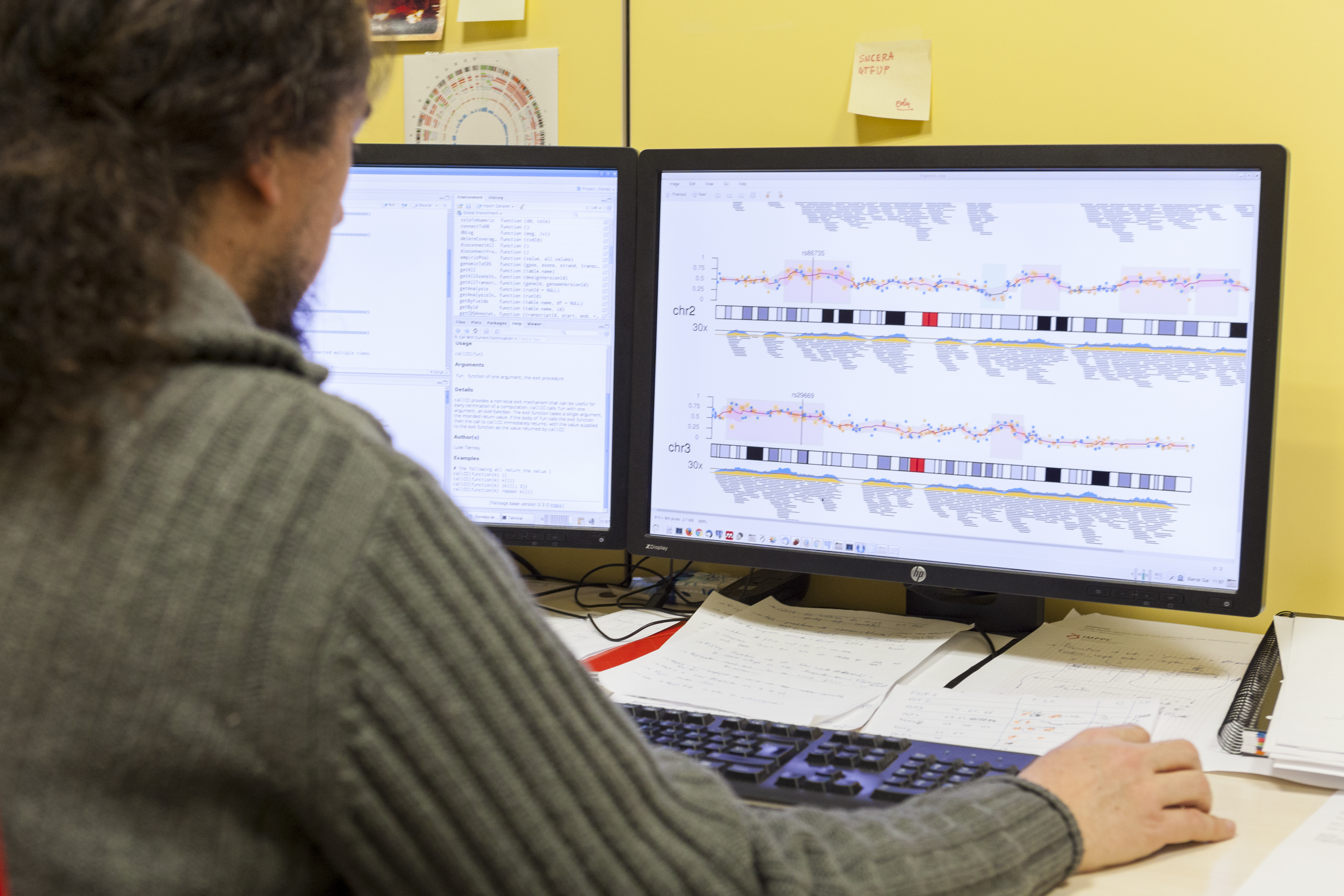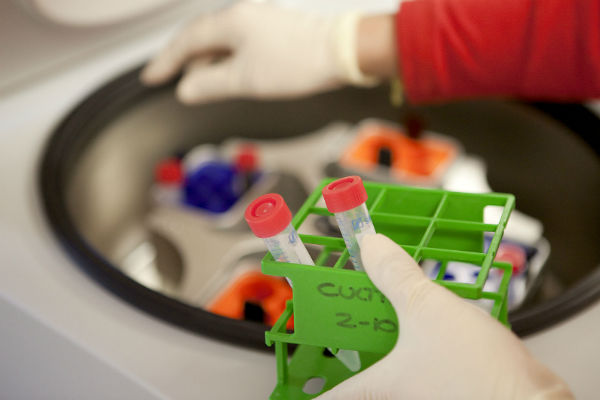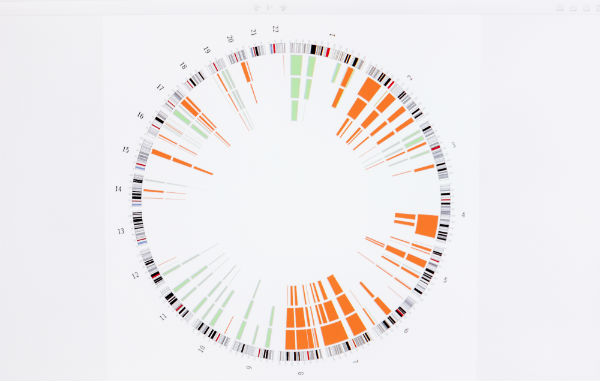Hereditary Cancer Diagnostics
The IGTP Genetic Diagnostics for Hereditary Cancer Unit (UDGCH-IGTP) is part of the ICO-IMPPC Joint Program for Hereditary Cancer and part of HUGTP-ICO-IGTP Reference Center (CSUR) of Phakomatoses, which aims to detect and interpret mutations in genes that cause a predisposition to cancer. At the moment there are more than 100 known genes that cause different hereditary diseases which predispose to cancer when mutated. The UDGCH-IGTP is specialized in genetic analysis of Phakomatoses (Neurofibromatosis type I and II, Schwannomatosis and Tuberous esclerosis). Due to the clinical overlap in pediatric ages with Neurofibromatosis type 1, the UDGCH-IGTP is also specialized in the study of RASopathies.
At the moment the UDGCH-IMPPC offers genetic diagnostics based on the stuydy of dandidate genes by a custom NGS panel of 135 genes and custom analysis algorithms that allow us to detect pioint mutations and deletions/duplications of analyzed genes. (Castellanos et al 2017 & Feliubadaló 2017). Variants detected are validated by alternative techniques (Sanger and MLPA sequencing).
National Reference Center: As UDGCH-IGTP is the genetic laboratory of the Reference Center of Facomatosis, we also study Neurofibromatosis and Tuberous Sclerosis associated genes at RNA level to detect mutations in intronic regions that could alter the correct splicing. In addition, the UDGCH-IGTP is specialized in the study of these genes from tumors or cell cultures of specific tissues to solve the problem of mosaicism.
Administrative authorization as clinical healthcare centre and clinical genetics laboratory Ref. 75204





